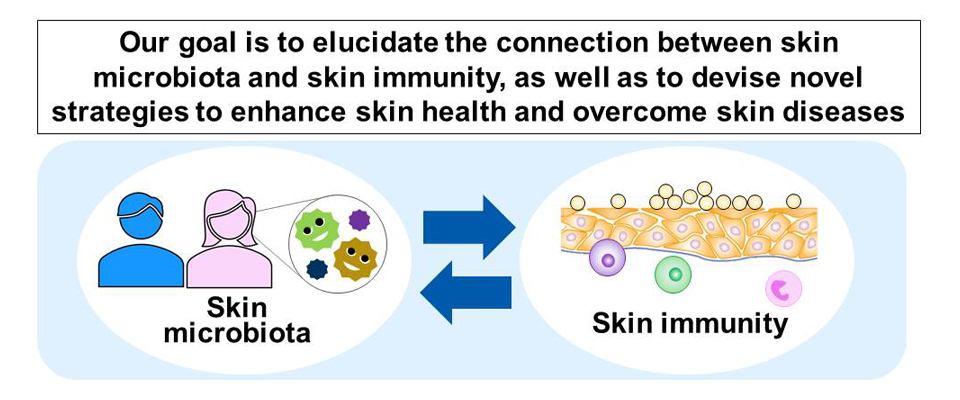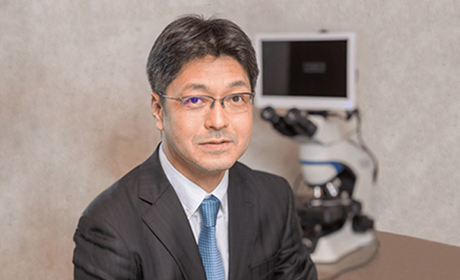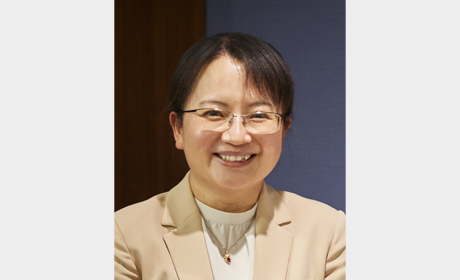A-29
Immunity and Regeneration Integration Unit
6F
0613A, 0911B
1. Understanding the pathogenesis of inflammatory skin diseases associated with dysbiosis
2. Analysis of the impact of maintaining skin homeostasis on overall health span
Our skin, the largest organ in the human body, protects us from the outside world. It also contains a diverse range of microorganisms that can impact our health. In particular, dysbiosis, which disrupts the normal bacterial flora, is known to occur in diseases such as acne vulgaris, atopic dermatitis, and psoriasis. However, the precise mechanism by which skin microorganisms affect the host's health and diseases is not well understood, and elucidating this could lead to the development of new treatments and preventative measures for skin diseases. Our laboratory employs cutting-edge analytical methods for the skin microbiome and host immunity, as well as 3D skin devices created from induced pluripotent stem cells, to analyze various inflammatory skin diseases and reveal new disease mechanisms, while also working on controlling pre-disease states to achieve "healthy skin."
Responsible Department
Department of Cutaneous Immunology and Microbiology
Research Partner
ROHTO Pharmaceutical Co., Ltd.

Project Members
Principal Investigator

Professor
Department of Dermatology

Professor
Immunology Frontier Research Center (IFReC)
Members
Specially Appointed Associate Professor
(Lecturer)
Department of Cutaneous Immunology and Microbiology
Joint Research Collaborator
ROHTO Pharmaceutical Co., Ltd.
Joint Research Collaborator
ROHTO Pharmaceutical Co., Ltd.
Links
Department of Dermatology, Graduate School of Medicine, The University of Osaka
https://www.med.osaka-u.ac.jp/eng/introduction/research/integrated/dermatology
Departmennt ofj Cutaneous Allergy and Host Defense, WPI Immunology Frontier Research Center, The University of Osaka
https://www.ifrec.osaka-u.ac.jp/en/laboratory/yumi_matsuoka/index.htm
ROHTO Pharmaceutical Co., Ltd.
https://www.rohto.co.jp/global/




















